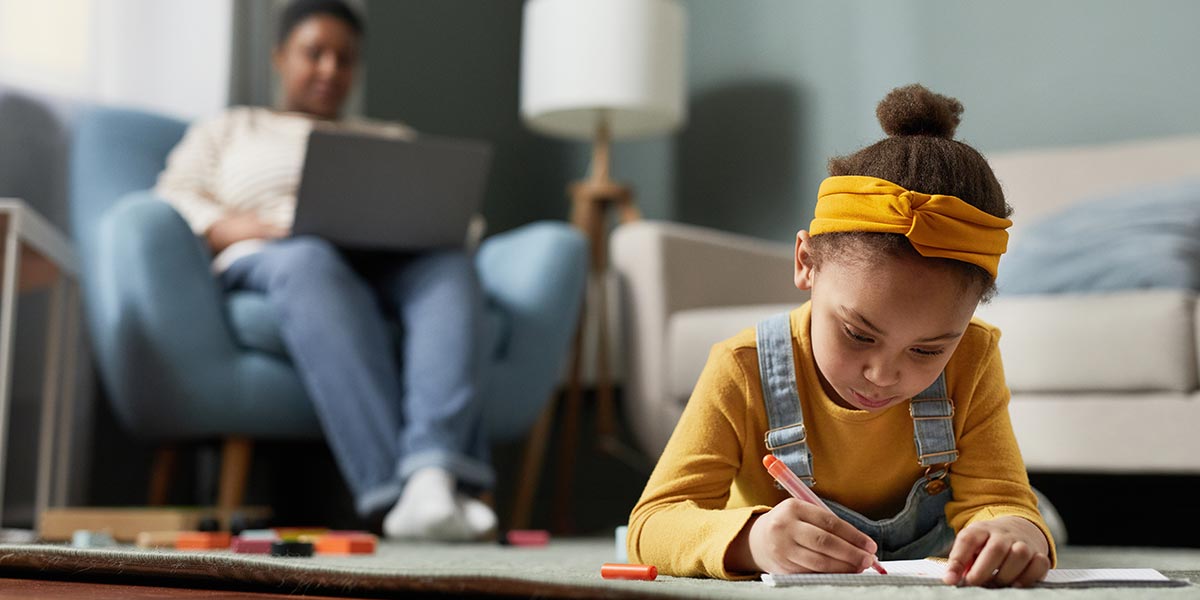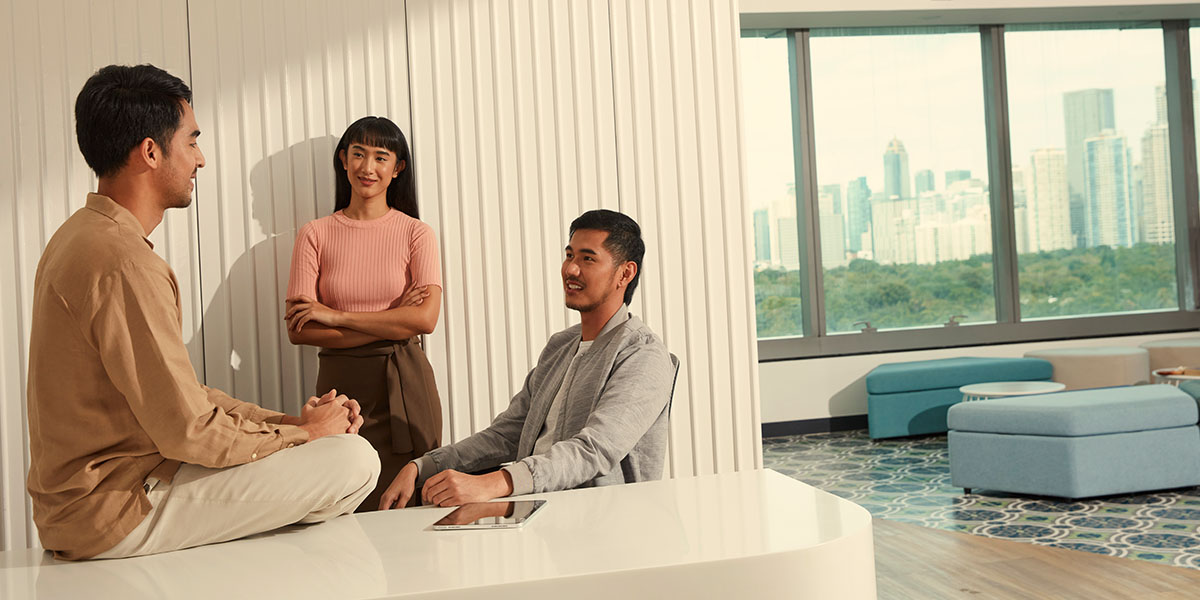Feeling like you need to take time off work to improve your mental health? A sabbatical might help. Here’s what to consider before asking for one.
Getting ready for life after COVID-19
COVID-19 turned our lives upside down. As vaccines roll out, how do we get ready for the new post-pandemic normal? Here’s how you can reduce the stress and anxiety you may feel about getting back into the world.

Feeling especially cautious about your health since the COVID-19 pandemic began? You’re not alone. Staying at home and socially distancing yourself from others may feel second nature by now. But what happens when the lockdown eventually ends? “It can feel very strange to go outside or return to an old routine,” says psychologist Valérie S. Legendre. Legendre is the Director of Mental Health Solutions at Sun Life. She points to studies showing an increase in psychological distress and post-traumatic stress disorder (PTSD) after a long period of quarantine.1 Which by this point is almost all of us who’ve been in different phases of lockdown.
“Life as we knew it, pre-pandemic, might have been easy for most people”, says Legendre. “However, going into the world after a long break and still facing a mysterious virus can be very threatening.” Is there any way to ease the transition as the world gradually opens again? Here are Valérie Legendre’s tips for reducing stress and anxiety.
1. Get your vaccine when you can
Hope is on the horizon. Vaccination efforts are ongoing in Canada. Check the Government of Canada’s COVID-19 page and get your appointment when you can. Vaccines approved in Canada go through a thorough vetting process by health experts and are safe. Getting the vaccine when you can is the best way to get back to the life you love and miss. And, it contributes to making communities safer for everyone, including our loved ones.
Getting vaccinated could also help lessen the anxiety you feel about getting back into the world. It can help you feel empowered and help build up your resilience to once again:
- take public transportation,
- go into the office for work,
- leave your kids at school or daycare, or
- eat out at a restaurant.
2. Keep doing the things that got you through lockdown
If you started baking, reading, writing, knitting, exercising at home or whatever it was – keep at it.
“This way,” says Legendre, “you can maintain some normalcy. Even as the world around you continues to change.” She adds, “It’ll also give you an ongoing sense of achievement.”
Feeling like you’ve accomplished something helps foster positive emotions and thoughts. This, in turn, can reduce negative emotions that lead to stress.
3. Talk to your employer about going back to work
Like many Canadians, you may have worked from home during the pandemic. Slowly, some workplaces that closed are opening up again. You may feel nervous about going back to work. Especially if you have to interact with several people in-person.
“Establish clear communication with your employer about what returning to work looks like,” says Legendre.
You may want to ask:
- Will we be returning in phases or all at once?
- What safety measures will be in place in the workplace?
- Will we be able to maintain social distancing at work? If so, how?
- Will you require that we get COVID tests regularly?
- Will we need to complete a health screen/survey every day?
- Will you require that we wear face masks?
Maybe you’ve adopted flexible work hours? Ask your employer if you can continue to do so on a regular basis.
Your employer may ask that you show up to work in person. Ask your manager if you can manage your work schedule. This could help avoid packed buses, trains or elevators during rush hour. These accommodations could help you ease back into in-person work.
Your employer may have put several measures in place to keep you safe and healthy. However, your feelings of discomfort may take longer to dissipate. Talk to your employer about how you feel. Together, you can see what accommodations may help you ease back into your workplace.
- How to talk to your boss about mental health
- The power of starting a conversation: Mental health in the workplace
4. Keep following public safety measures
We know the benefits of eating well, getting regular exercise and getting enough sleep. It’s well known that these great habits can help:
- combat various diseases,
- reduce stress and
- boost your mood.
If you’re already doing these things, stick with it. If you found yourself in a bit of a slump during quarantine, that’s OK. You can pick up these habits whenever you’re ready.
- 5 tips for working out at home
- 10 tips for healthy eating on a budget
- What to do if you’re not getting enough sleep
- How to start working out after a long break
No one knows when – or even if – COVID-19 will be behind us. Some tried and true healthy habits can continue to help protect you from getting sick. Be sure to:
- wash your hands regularly with soap and water,
- clean your surroundings (e.g. tables, desks, surfaces) with disinfectant,
- avoid touching your face with unclean hands, and
- stay home if you feel sick.
Also, even with vaccines, it’s important to continue following public health measures until the pandemic is over. This means:
- maintaining a 2-metre distance with people not in your immediate household;
- wearing a mask when you can’t maintain a 2-metre distance;
- avoiding non-essential travel until the government lifts travel bans.
5. Listen to information from trusted sources
As lockdowns begin to lift, rules will vary from region to region. Rules for going out and meeting others can vary and potentially tighten to respond to surges. Legendre emphasizes that you should:
- remain cautious of information from unverified sources,
- avoid 24/7 news channels that overexpose your brain to too many useless details and
- look to government sources for accurate information.
Visit your provincial or territorial government’s website “They provide information and guidelines on what is safe or not,” says Legendre. “Having clear guidelines can help reduce people’s uncertainties. Which can also reduce their anxiety.”
6. Get help when you need it
It’s an emotional time. You may be feeling anxious, frustrated, afraid or concerned. To help you through it, Legendre recommends getting the support you need.
“Talk to a trusted friend or family member about your worries,” she says. “Sometimes just talking to someone can help you feel reassured or relieved.”
She adds good news. People are resilient. “Most of the people who are anxious right now will recover in the weeks, or months, after the government lifts lockdown restrictions,” she says.
You may find yourself really struggling with anxiety or depression or another type of psychological distress. Or finding this quarantine and post-lockdown experience extremely difficult. “Don’t hesitate to seek professional help,” says Legendre.
Remember, you don’t have to deal with all of this on your own. Here are some mental-health resources to keep in mind:
- Do your workplace benefits include an Employee Assistance Program (EAP)? These programs often include free virtual therapy sessions for you and your family. Talk to your employer or HR department for more information.
- Lumino Health’s provider search can help you find various health-care providers in your community, including psychologists.
1Hawryluck L, Gold WL, Robinson S, Pogorski S, Galea S, Styra R. SARS control and psychological effects of quarantine, Toronto, Canada. Emerg Infect Dis 2004;10:1206–12.
This article is meant to provide general information only. It’s not professional medical advice, or a substitute for that advice.
Read more:


